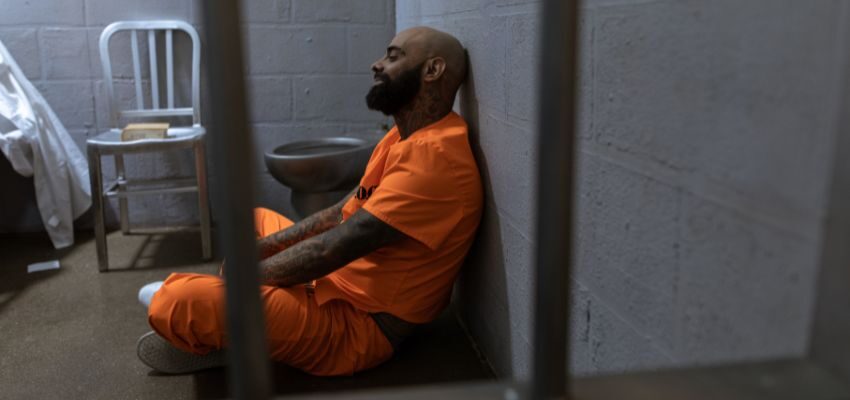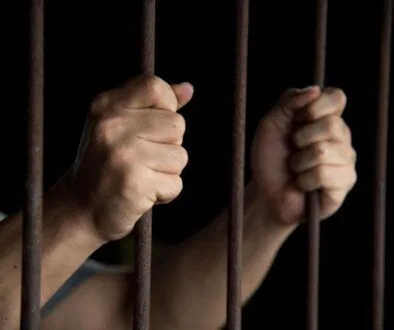Solitary Confinement in Prison: Risks, Pros, and Cons

Published May 18, 2023
Some form of solitary confinement exists in almost every prison around the world. But is it humane? More importantly, does it really reform prisoners or just worsen their suffering?
In this post, we’ll take a look at what solitary confinement in prison really is like, its pros, cons, and effects on the prisoner’s well-being.
What is Solitary Confinement?
In prison, solitary confinement involves keeping an inmate alone in a single cell for almost an entire day (usually 22 to 24 hours). Also known as “the hole”, it’s usually doled out as a punishment. Though in some cases, it’s done to protect the inmate or as a security measure.
You see, when inmates break a prison rule, start a riot, or kill someone, they are often punished with solitary confinement. They could stay there for days, depending on the warden’s decision.
Sometimes, when inmates get involved in prison fights or become the target of violence, they are also sent into isolation. This protects them from other inmates who are out to harm them.
In maximum security prisons or “supermax”, all inmates are held in solitary confinement for up to 23 hours a day. Most supermax inmates have proven violent tendencies. So keeping them in isolation is more of a security measure than a punishment.
What Happens During a Solitary Confinement?
When a prisoner is sent to solitary confinement, they are usually kept alone in a single cell. In most cases, the cell will have no windows and are often in a separate wing from the general population.
During their isolation, prisoners are allowed very minimal contact with the outside world. If they’re lucky, they’re allowed an hour or two each day to do some exercises or recreational activities. But if not, they’ll have to spend days holed up alone in their windowless cells.
Obviously, visitors are not allowed during this time. So do calls and jail mail. Basically, any form of contact with the outside world or their fellow inmates is forbidden.
Is Solitary Confinement a Form of Torture?
In recent years, there had been lots of objections concerning solitary confinement. Some argue that it’s inhumane. While others are saying that it’s a form of torture. But is it?
If you think about it, yes, solitary confinement can be a form of torture – under certain circumstances.
While there is no physical harm involved, solitary confinement can be very mentally taxing. Imagine spending your days in a dark cell, with only yourself as your company. After a few days, you’ll probably start talking to yourself, the walls, or anything that moves. Even after you get out of there, those days in isolation will surely leave a mark on you.
In fact, research suggests that prolonged isolation can cause harmful and long-lasting effects on a person. One study even suggests that solitary confinement can shorten one’s life. Plus, long periods of no human interaction can undeniably affect one’s ability to function socially.
In short, solitary confinement can imprint trauma on a person – just like torture. Instead of reforming the inmate, it usually achieves the opposite. It’s no wonder why many people are calling this practice degrading, brutal, and inhumane.

ADVERTISEMENT
Pros and Cons of Solitary Confinement in Prison
While many people are criticizing solitary confinement, states and prisons are praising its effectiveness. So is it good or bad? To answer that, let’s look at its pros and cons:
Pros
- It ensures the safety of the general prison population.
Solitary confinement cells are often populated by prison troublemakers. They are those who are fond of instigating prison riots or have violent tendencies. Placing them in isolation protects the rest of the inmates. It also helps prevent riots and reduce violent incidents within the prison grounds.
- It offers a way for prison guards to control negative behavior.
Even violent criminals become uneasy when threatened with solitary confinement. This helps prison guards keep them in check. It also makes them more obedient to prison rules.
- It protects vulnerable inmates who are targeted by other violent inmates.
As mentioned, solitary confinement can also be used to isolate inmates who are targeted by other inmates. Separating them from the general population keeps them away from inmates who are out to harm or even kill them.
- It provides an introspection opportunity for erring inmates.
Proponents of solitary confinement believe that spending time in “the hole” allows inmates to do some soul-searching. Alone with themselves, they can now reflect on their thoughts and examine their conscience. Some may come to regret their actions while others may even have a change of heart.
Cons
- It’s a violation of basic human rights.
According to the UN Convention Against Torture, any action that causes extreme suffering, whether physical or mental, is torture. Since solitary confinement does just that, it can be considered a form of torture.
The UN Human Rights Commission also encouraged the abolition of solitary confinement since it’s in contravention of the basic rights of prisoners.
- It strips inmates of their freedom.
Yes, inmates already have restricted freedom. But putting them in solitary confinement takes away what little freedom they have to themselves.
In the general population, inmates still have the freedom to enjoy recreational activities. They can accept visitors, talk to their loved ones, and even do some work. But alone in their isolation cells, they aren’t allowed to talk to anyone or even do anything. Sometimes, they’re even chained to the floor.
- It affects an inmate’s mental health.
There is no question that being kept in isolation can be damaging to an inmate’s mental health. It will not only leave a deep and lasting mental trauma. It may also lead to anxiety, depression, and other mental health issues.
- It can lead to physical deterioration.
Aside from the mental stress, solitary confinement can also lead to physical deterioration. I mean, isolation cells often don’t have windows. So inmates don’t get any sunshine. They also don’t get enough physical activity. All these can lead to a weaker immune system and various disorders.
Furthermore, studies indicate that solitary isolation increases the likelihood of death by 26% to 32%.
Reduce Your Jail Call Costs By Up To 90% Per Minute With GlobalTel
GlobalTel’s inmate calling service lowers jail call per minute rates by up to 90% for jail calls from US facilities. Sign up now and use the special jail call phone number we create for you to eliminate the long distance jail call fees. Try GlobalTel for only $45.99 for 90 days. Make US/domestic and international jail calls at the local rate and stay connected to your incarcerated loved ones for less. Learn more about how to sign up for calls from inmates here.

This Content Is Fact Checked
Our esteemed team of specialists has thoroughly validated the accuracy of this information. Discover further details about the rigorous editorial guidelines for our website here.
ADVERTISEMENT

About The Author
Judy Ponio is a professional writer for the GlobalTel blog. She works hard to ensure her work contains accurate facts by cross checking reputable sources and doesn’t settle for less. Her passion for telling stories about true crime and criminal justice has allowed her to create hundreds of articles that have benefited millions of people.




